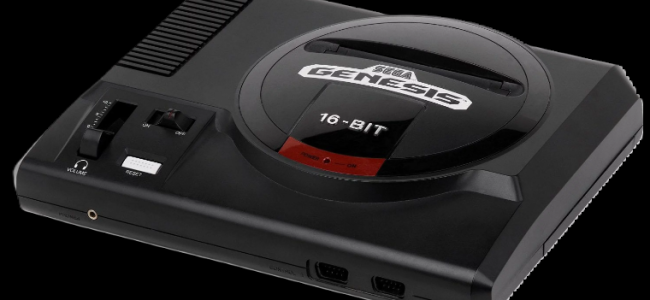About Sega Genesis
This is the console that brought a blast processing jolt to the gaming world and made us all believe that “Genesis does what Nintendon’t.”
Released in North America on August 14, 1989, the Sega Genesis (known as the Mega Drive in other regions) was Sega’s bold attempt to dethrone Nintendo from its pixelated throne. Spoiler alert: it didn’t completely dethrone Nintendo, but it gave them a run for their money and secured a legendary spot in gaming history.
The Genesis of the Genesis
When the Genesis hit the scene, it was like the cool new kid at school who instantly made friends and sparked rivalries. Sega launched the console in Japan first, as the Mega Drive, on October 29, 1988. While it didn’t initially set the Japanese market on fire, its North American release strategy was much more effective, thanks in part to an aggressive marketing campaign and some savvy pack-in game choices.
The Hardware
The Genesis was a sleek black box with sharp edges and a “16-BIT” label that proudly flaunted its power. Inside, it housed a Motorola 68000 processor running at a sizzling 7.67 MHz, paired with a Zilog Z80 sub-processor. This combo allowed the Genesis to deliver fast and smooth gameplay, which Sega famously dubbed “blast processing”—a term that sounded super cool, even if it was a bit of marketing fluff.
The controller, a boomerang-shaped beauty, initially featured three buttons (A, B, and C), which was later upgraded to a six-button layout to accommodate the more complex controls of fighting games like “Street Fighter II.”
The Games
Let’s talk about the games, because that’s where the Genesis really shined. Sega knew it needed a mascot to compete with Mario, and boy, did they deliver. Enter Sonic the Hedgehog, a blue blur with attitude who became the face of the Genesis. Sonic’s speed and style captured the hearts of gamers and made the Genesis a must-have console.
Beyond Sonic, the Genesis had a library filled with diverse and iconic titles. “Streets of Rage” brought gritty, side-scrolling beat-’em-ups to living rooms, while “Golden Axe” offered up fantasy hack-and-slash action. For sports fans, “Madden NFL” and “NHL 94” became household staples, transforming sports video games into a genre all their own.
RPG enthusiasts weren’t left out either. “Phantasy Star IV” and “Shining Force” provided deep, engaging adventures that rivaled anything on the Super Nintendo. And then there were the arcade ports: “Altered Beast,” “Mortal Kombat,” and “Street Fighter II: Special Champion Edition” brought the arcade experience home, often with a bit more blood and guts than Nintendo would allow.
Popularity and Impact
The Genesis quickly gained a loyal following, particularly in North America and Europe. By the early ’90s, it had become the biggest competitor to Nintendo’s Super Nintendo Entertainment System (SNES). The “console wars” between Sega and Nintendo were the stuff of legend, with fans passionately debating which system was superior. Sega’s edgy marketing campaigns, including the famous “Genesis does what Nintendon’t” slogan, only fueled the fire.
Despite fierce competition, the Genesis sold over 30 million units worldwide, a significant achievement and a testament to its popularity. It didn’t just attract hardcore gamers; it also expanded the gaming demographic by appealing to an older audience with more mature titles and themes.
Legacy
The Sega Genesis left a lasting impact on the gaming world. It helped popularize sports games, brought arcade-style gameplay into homes, and introduced unforgettable characters and franchises. The Genesis also pushed the envelope in terms of what a home console could do, setting the stage for future advancements in gaming technology.
In recent years, nostalgia for the Genesis has remained strong. The release of the Sega Genesis Mini in 2019, a miniaturized version of the original console pre-loaded with classic games, was met with widespread enthusiasm. Fans old and new relished the chance to revisit the titles that defined a generation.
Thank You, Genesis!
The Sega Genesis was more than just a gaming console; it was a cultural phenomenon that defined an era. It brought speed, style, and a bit of attitude to the gaming world, challenging the status quo and pushing the industry forward. Whether you were blasting through Green Hill Zone, brawling on the streets, or slashing through fantasy worlds, the Genesis provided unforgettable experiences that continue to resonate today. So here’s to the Sega Genesis: the console that proved that 16 bits of pure fun and a little bit of sass could go a long way.




